by Jenny Rose | Oct 1, 2022 | Connection & Community, Emotional Intelligence
What happens when we disagree?
Not if we disagree, but when. Because we will always disagree eventually. Always.

Photo by roya ann miller on Unsplash
Is that bad?
It depends who you ask!
Disagreement, or lack of consensus, is going to happen whenever two or more of us are interacting. Why, then, has it become so risky, this perfectly normal opportunity to show our work or learn another point of view? Why are we so insecure we can’t tolerate the slightest disagreement? Are our egos so fragile we can’t stand to be wrong or rethink a position? Does our fear of moral condemnation outweigh our ability to consider ideas and information (facts) clearly and critically and speak honestly about our conclusions?
When did differing opinions become a matter of hate and violence, and speaking our truth start leading to such brutal consequences?
Do we no longer understand how to agree to disagree?
Will authoritarianism ever lead to true agreement, or is the best we can hope for a sullen silence and mandated obedience?
(Don’t forget the French revolution.)
Certainly, it appears more and more people value power over truth, rigidity over resilience, and mindless agreement over genuine collaboration and teamwork.
If we must be in agreement all the time, there’s no hope of true cooperation and we each remain locked in our own narrow impoverished bubble, interacting only with those whose bubbles look exactly like ours. Except I don’t know of anyone who has exactly the same bubble as another. But then we’re experts at constructing believable facades.
Insisting on 100% agreement all the time guarantees cultural collapse. We can’t do it. We’re not made that way. It’s a social dead end for humanity. We cannot thrive or even survive without a healthy complex social system among our own kind as well as with countless other forms of life.
The friction of disagreement, of difference, is essential. It keeps us flexible and demands we exercise our learning and listening skills as well as use our imagination and empathy. Disagreement is a sign of respect and caring, both for ourselves and our point of view and experience, and for others. If we care enough to disagree openly and peacefully, we’re signaling our willingness to make an authentic commitment and contribution. We’re not sitting back accepting brainwashing passively, but actively participating and engaged, examining, exploring, and asking questions about whatever is in our attention.
At least some of us are.
Others demand an environment of complete agreement with no questions asked. Heavy social penalties occur if someone steps out of line. There is no negotiation, no cooperation, no discussion, no new information or showing of work. You will agree and obey. Or else.

Photo by James Pond on Unsplash
Fortunately, we humans have a wide rebellious streak, some more than others. Certain people are never going to sit down and shut up. Certain people do not worship the status quo, especially if it doesn’t serve the majority. These folks disagree, and they say so. They provide information (facts) to back up their point of view. They ask inconvenient and uncomfortable questions. They shine the clear light of critical thinking on issues and ideology.
They don’t drink the Kool-Aid.
Disagreement does not need to be a call to arms. It’s not hate. It’s not disrespect or intolerance. It’s not prejudice or bigotry. It doesn’t mean we have to cut perfectly healthy relationships out of our lives. Disagreement is a chance for connection and an expanded empathy. It’s an opportunity to learn. Disagreement is a sign of diversity, and a diverse system is a healthy one.
A system in which disagreement is forbidden cannot thrive, adapt, and grow. It’s brittle and stunted, just like the scared, shriveled human beings controlling it.
Want peace? Want tolerance, justice, and respect? Learn, demonstrate, teach, and support the kind and gentle art of disagreement.
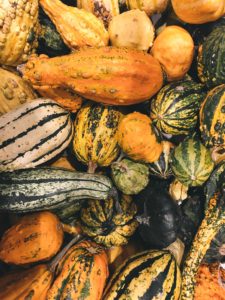
Photo by Brigitte Tohm on Unsplash
by Jenny Rose | Oct 5, 2017 | Emotional Intelligence, Feelings, Love
A few weeks ago I wrote about romance and in that post I confessed that at this point in my life I’m not sure what love actually is. A strange admission from a reasonably intelligent, well-educated, middle-aged broad with two marriages and two children in her history.
Writing that post enabled me to clearly separate romance from love; though I suppose love might include a little romance from time to time. I’m convinced romance is not synonymous with love, however. I began to make a mental list of what love is not, as I often approach things from the back door first. Love is not a synonym for:
- Romance
- Sex
- Slavery
- Control
- Possession
- Obsession
- A suicide pact
- Abuse
- Fear
- Duty
- Obligation
- Enabling
- Obedience
All right. So what is love? My Randall House Collegiate Dictionary says it’s “a profoundly tender, passionate affection for a person” or “a feeling of warm personal attachment or deep affection.” This definition doesn’t satisfy me at all. My rewrite is that love is a feeling of warm, tender connection and deep affection. I don’t think love is always passionate and I don’t like the word attachment. If anything, love implies to me an attitude of nonattachment.
But what about unrequited love? What about failed love or withdrawn love or love as a weapon or a tool? What about the inability to accept love, or feeling unloved though being told we are? What about those who make us feel our love is ugly, twisted, shameful or inadequate?
I’m always playing with words in my head. This week it’s “What is love?” and “What is a crone? and “What are the differences between compassion, empathy and sympathy?” I lie down with those inquiries and wake up with them. I turn them over while I shower, cook bacon, wash dishes, take my morning walk, practice Tai Chi and drive to town. I’m constantly scribbling notes.
I gave a neighbor a lift this morning and asked him to talk to me about compassion, sympathy and empathy. Poor man. He didn’t know what to make of me.
Yesterday, during my frosty morning walk, I dove into a stand of staghorn sumac below the barn and went to visit the spring. This is a daylight spring seeping out of the hill on which the barn and house stand. A long time ago, someone dug a well there, and at one time a pump and tank were installed, along with a system of black plastic outdoor lines to carry water to and from the barn, the garden, and down through the woods to, presumably, crops in the fields below. All the equipment is many decades old now, fallen over and covered with leaves and moss. The well is protected by a round cement cap, much too heavy for me to lift alone (drat!).
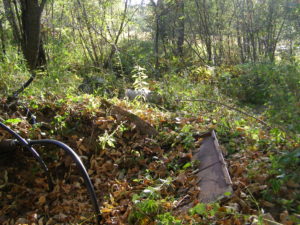
Spring
This spot is hidden in a thick tangle of vine, briar and trees. We rarely go in there, though it’s in close proximity to the barn.
It’s fall and it’s been dry, but the drainage where the spring emerges is clearly marked by rocks and moss. The ground underfoot felt soft, and when I brushed away the leaves I found moist earth. A yard or two below that is mud, and then a trickle of water and then, at the bottom of the hill, a quiet film of water, barely moving, reflecting the tree-laced sky. Right now It’s full of apples dropped from an apple tree that grows alongside it.
As I slipped and slid, tripping over vines and getting scratched by hawthorn and raspberry bushes, feeling the velvety moss coating the rocks and stepping cautiously on rotting wood, it occurred to me that love is like this spring.
I’ve always thought of love as an action verb, something I do to another in exchange for receiving the same. I thought I knew what I meant when I used the word, though I was never challenged to define it exactly. For me it’s been a catch-all term, synonymous with dozens of other, more specific actions: Want, need, desire, honor, trust, respect, care about, listen to, defend, make excuses for, enable, protect, support, believe in, etc., etc.
But what if love is just being? What if it has no object, but just is?
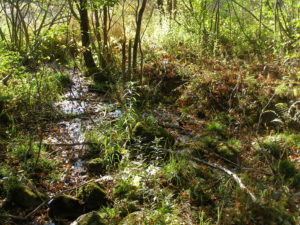
Spring
This little spring is absolutely true to itself. Water drains off the hillside above us and carves a path through the earth and rock until it emerges and runs down the surface at the foot of the hill. We pay no attention to it whatsoever. It’s reliable, predictable and faithful, but not because anyone is looking. Its unobtrusive, quiet presence has created a lush pocket of life, a complex system of plants, fungi, animals and insects, but ten yards away on the open hillside it’s invisible.
What if I make a choice to allow my feeling of love to run through my life in the same way the spring runs through and over the ground? What if I carry within me a wellspring, a hidden cleft, moist, fertile, filled with life, rich in sensuality, simply because it’s an expression of self? If others find their way to it, sit a while, bathe, drink, and allow it to nourish and refresh them, they’re welcome. If others can’t see it, or don’t value it, or dislike the perfume of rotting wood and leaves or the feel of plush moss under their bare foot, it’s nothing to do with me. Not everyone chooses to make their way through raspberry and hawthorn bushes, after all.
What if I don’t need anything in return because I’m giving nothing away? Perhaps the act of love can be a simple state of being, not a totality, not a hurricane of passion and lust, not a romantic fairytale, not a prison and torture chamber, but a spring, a waterway, a shining thread I can share without depletion. Can I allow it to seep quietly up through the roots of my experience, even if no one else ever finds it, wants it, returns it or deems it acceptable?
Our spring is part of a landscape of field and forest, river, pond and stream, rocky hillside and bog. The landscape contains many forms and embraces many systems of life. Birth and death happen on this land. Disease, erosion and flood happen on this land. Prey and predators carry out their sacred dance of balance here. Blood, bone, fur, feather, antler, musk, urine and feces are all here.
I, too, am a complex system of history, memory, belief, thought and feeling. I do not feel love for everyone and everything. My experience of love is that it’s a wild thing; it seeps up where it will and trickles away without warning, taking no account of rules and expectations. I can’t command it and I don’t choose to hold it back. My love doesn’t need anyone’s reception, appreciation, validation or praise.
Love is. I reserve the right to love as I will. I am the keeper of my own wellspring.
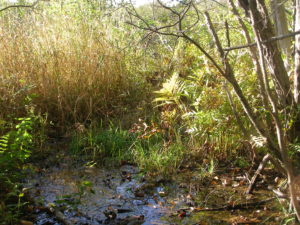
Spring 10/2017
All content on this site ©2017
Jennifer Rose
except where otherwise noted
by Jenny Rose | Feb 23, 2017 | A Flourishing Woman, Body, Food
I recently read a blog post about vegan bullying.
Yep. You read that right. Vegan bullying is a thing.
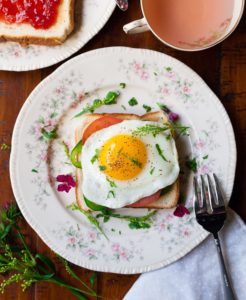
Photo by Joseph Gonzalez on Unsplash
It’s time for me to write about food.
I grew up in the 60s and 70s in a middle-class family with the standard education about the food pyramid, Food Commandments from the ADA, and a mother who was very concerned and conscientious about feeding her children and animals in the best possible way. Remember Adele Davis?
In my adult life, I was never a vegan or even a vegetarian, but I did eat mostly fruit, grain and vegetables. I bought organic whenever possible. I took supplements. I baked my own bread and desserts, made my own granola, and cooked gallons of stews, soups, chili and hot cereal over the years in my crock pot for my family.
Thanks to my mom’s good sense, my lack of a sweet tooth, and my income level, soda, fast food, candy, donuts and other mass produced sweets have never been a large part of my food intake.
All my life, I’ve sincerely believed I’ve had a healthy, well balanced diet. I avoided white sugar, high-fat and junk food. I made smoothies with low-fat unsweetened yogurt. I grew my own vegetables and herbs. I’ve never been overweight. In fact, I’ve had trouble keeping weight on.
I have a family and/or personal history of rheumatoid arthritis; inflammatory bowel disease; fibromyalgia; constipation; poor circulation; restless leg syndrome; migraines; gout; chronic pain; chronic fatigue; muscle spasm; insomnia; depression; anxiety; asthma; skin and sinus problems; food, environmental and drug allergies; and hypothyroidism.
It’s interesting to note how much of this list has to do with inflammation.
The list is kind of daunting written out like that, but members of my family rarely go to the doctor or take any kind of medication. None of us are overweight. Mom and I don’t drink alcohol or smoke. A lot of the above diagnoses are nebulous and chronic rather than acute. We take vitamins, exercise, try to eat well and control our stress, and do our best with the constant presence of chronic pain and discomfort. Conventional medicine can’t do much for most of this list except prescribe pain meds, anti-depressants, anti-inflammatories, antihistamines and anti-anxiolytics.

Photo by freestocks.org on Unsplash
Stepping back and considering our current social context in America, we have millions of people suffering from obesity, diabetes, heart disease and a dozen addictions, not the least of which is the current exploding opioid dependence. Millions and millions of people are suffering with increasing anxiety and other mental health challenges, exacerbated by the current political and social climate. Weight loss programs, supplements, books and weight gurus make billions of dollars a year. We’re obsessed with food and our relationship to it.
Food production is complicated and often unethical, to say the least. Monocropping practices by Big Agriculture annihilate the land, destroying the delicate, complex web of plants, soil organisms, animals and insects. We’re exposed to artificial fertilizers, insecticides and other poisons, whether we use them or not.
Commercial animal food production practices have frequently been horrifically inhuman and unhealthy, both for the animals and for consumers.
Healthcare, to put it kindly, is in disarray. As a medical transcriptionist, I routinely transcribe medication lists that contain twelve or more prescription drugs. Exponential pharmaceutical costs are in the headlines. I myself have insurance, for the moment, through Obamacare, but it’s useless. The only insurance I can afford has a $5,000 deductible. I couldn’t deal with a $500 deductible. I never see a doctor unless it’s a dire emergency, and then I always have to fill out indigent care paperwork to get a sliding scale fee.
Adding to the confusion is the ever-present influence of money. Advertising. Food stamps. Fast food. Dating. Meeting friends for a drink or at the coffee shop. We struggle to feed our families. We debate about vending machines in schools and school lunches. We deal with food-borne illnesses. We have no money and live on beer and ramen noodles, or oatmeal, or rice and beans. We know from advertising the right food can make us beautiful, make us strong, cure our ills, provide us with happy relationships, better hair, younger and more attractive bodies, a perfect date. We should eat beef. We should eat gluten free. We should eat organic. We should eat a pizza. We should eat vegetarian. We should drink milk. We know how to eat well, but we can’t afford to. We know how to eat well, but the rest of our family won’t cooperate. We know how to eat well, but we don’t have time.
Yet all life must eat. A living body is a complex system of energy, organs, elements and chemistry, and we know a lot about how the complex system of the human body works. If we don’t feed our body well, it gets sick.
We all think we know what it means to eat well, based on learned information, our experience within our own bodies, our observations of others, and in some cases our spiritual and political beliefs. Of course, it’s hard to think clearly when in the grip of an addiction to sugar and carbs (this includes alcohol), but that counts only if we acknowledge our addiction and its power to drive our behavior, right?
We all know what a good diet is. Everyone knows. It’s merely a question of self-discipline.
If only it was that simple.
In fact, everyone doesn’t necessarily know what a good diet is, for themselves or anyone else. There’s a lot of confusion, a lot of disagreement, a lot of conflicting “science” and advice. There are a lot of social, financial and political agendas, a lot of manipulation and brainwashing, a lot of misleading and frankly false “information.”
Why is one of the most basic activities of life so complicated? Why is there so much conflicting “information?” Why are we so unhealthy? Why are we so dependent on Big Pharma? Why are people in their late 20s having heart attacks and strokes? Why is there an obesity epidemic? Why is diabetes on the rise?
When did we get to the point of vegan bullying, or any kind of food bullying, for that matter?
Finally, lest we Americans forget there are people outside America, how is it possible that famine still exists in the world when so much food is wasted and discarded every day? What social and political dynamics allow people to starve to death in Africa or anywhere else, while other populations suffer malnourishment and metabolic starvation encased in obesity?
Lastly, why is the topic of diet so inflammatory? Why do vegans and vegetarians bully meat eaters? Why is eating meat conflated with gun rights, hatred and cruelty? Why is it unacceptable to challenge our current belief systems around food?
Hard questions without simple answers. Hard questions guaranteed to outrage lot of people.
Why?
This topic to be continued here, here. and here.
Please see my Resources page for more information on food, diet, nutrition and health.

Photo by Jonathan Simcoe on Unsplash
All content on this site ©2017
Jennifer Rose
except where otherwise noted








